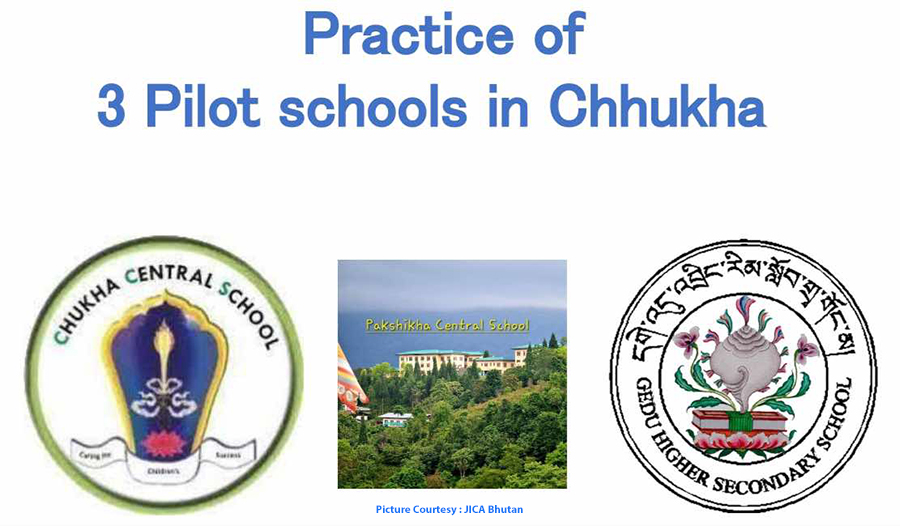
Three schools in Chhukha have been working on local issues such as waste management and promoting local products as part of the Project-Based Learning for Gross National Happiness, PBL for GNH. Project-based learning is an educational approach that engages students to address real-world problems and promotes hands-on collaborative learning experiences. The programme was piloted as a school club activity in 2021 with support from JICA. A symposium was held in the capital yesterday to discuss the outcomes of this initiative.
To address local farmers’ marketing challenges, particularly with their potato produce, the students and teachers at Chhukha Central School collaborated with farmers in the neighborhood by creating various dishes with potatoes as the main ingredient.
“We aim to help the community. Tshimalakha is surrounded by villagers. So, they grow a lot of potatoes, and they face difficulties with marketing. So, we would like to absorb some of the potatoes in the school(restaurant) and develop them into new items,” said Damber Bahadur Tamang, PBL club coordinator, Chhukha Central School.
Similarly, based on their research and community feedback, students at Pakshika Central School developed a waste management plan that included proper segregation and collection of eco-bricks using waste materials.
“In the past, our school used to be filled with waste. It used to be full of wrappers of noodles that students consume. However, after we started the eco-brick initiative, we hardly see any trash in the school compound,” said Lhatu, PBL club coordinator, Pakshika Central School.
The JICA country representative said that this initiative will contribute to improving the quality of education.
“If I am not mistaken the government of Bhutan is aiming at the equitable quality of access to education for all of Bhutanese especially that the student and this project is contributing to the quality improvement of a kid educational system encouraging the teachers to flexibly you know introduce activity where that the students can learn how they can exercise the leadership how they can you know develop their team working skills and presentation skills,” said Tomoyuki Yamada, Chief Representative, JICA.
Meanwhile, the piloting schools expressed difficulties in managing time as the programme is introduced as a club and not yet integrated into the curriculum.
“It is not aligned with the curriculum project, though this PBL project is already in our curriculum strategy. However, the implementation part tends to fail because it only carries out some topics, not all the time. Moreover, it also depends on the teachers. Hence, it is very difficult for a teacher to take separate time for PBL and other co-curricular activities,” said Sonam Wangmo, PBL club coordinator, Gedu Higher Secondary School.
However, the JICA office has started discussions with the Ministry of Education and Skills Development to integrate PBL as a curriculum.
“We have just started a discussion because, firstly, the government would like to see how effective the approach is. So now we are seeing the result of this project. So, I am not sure how exactly the government would like to pick up a formal curriculum. But they are requesting us to expand these activities to the other part of the country, especially on the east side,” said Tomoyuki Yamada, Chief Representative, JICA.
The successful community revitalisation efforts through education in Ama-town, a small island in Japan, inspire project-based learning. This successful educational model has been introduced throughout Japan. The initiative empowers students to take charge of their learning and apply concepts practically beyond the classroom.
Devika Pradhan
Edited by Sonam Pem










